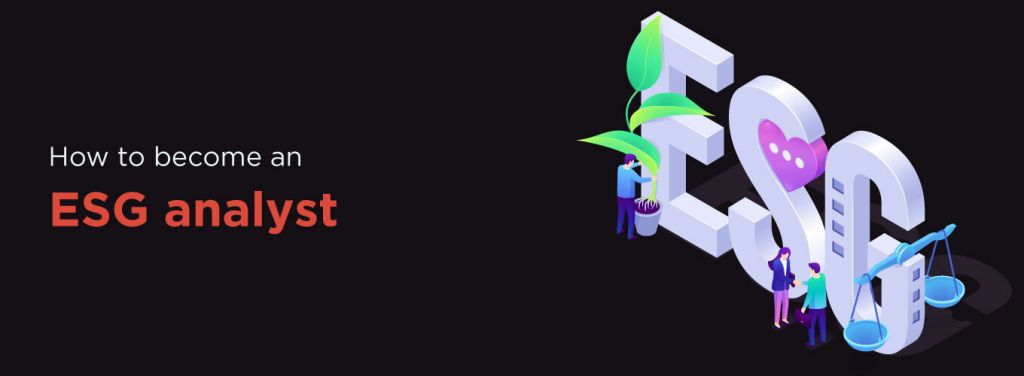ESG jobs are in high demand and gaining significant attention in the investment world. The focus is shifting towards corporate sustainability and social responsibility, making ESG a crucial aspect of modern investment strategies. This article explores the essential skills, responsibilities, and career pathways to become an ESG analyst and thrive in this dynamic field.
Understanding ESG
ESG, which stands for Environmental, Social, and Governance, is a framework used to evaluate a company’s commitment to sustainability, ethical practices, and social responsibility. It plays a crucial role in guiding businesses toward responsible operations and has become a key factor for investors focusing on sustainability.
- Environmental Factors assess a company’s impact on the planet. This includes sustainable packaging, responsible waste management, efficient use of natural resources, and eco-friendly manufacturing processes. Companies that prioritize environmental responsibility integrate sustainability into their operations, from sourcing raw materials to reducing carbon footprints.
- Social Factors evaluate how a company interacts with employees, customers, and the community. This includes fair wages, workplace diversity, employee well-being, community engagement, and contributions to social development. Companies with strong social responsibility prioritize ethical treatment of workers, customer satisfaction, and positive societal impact.
- Governance Factors focus on a company’s leadership, ethics, and compliance with legal standards. It includes executive compensation, shareholder rights, transparency in audits, and adherence to ethical business practices. Good corporate governance ensures accountability, builds trust with stakeholders, and promotes long-term business stability.

The term “ESG” was first introduced in a 2005 study titled “Who Cares Wins”. Today, ESG is a vital consideration for socially responsible investors, influencing financial decisions and business strategies. As ESG continues to gain significance, professionals looking to enter this field can enhance their career prospects by obtaining relevant ESG certifications.
What’s the Role of an ESG Analyst?
An ESG Analyst plays a crucial role in evaluating investment opportunities by conducting in-depth research on non-financial factors. Their primary responsibility is to ensure that investments align with environmental, social, and governance (ESG) criteria before offering financial advice. They assess various aspects of a company or project to provide stakeholders with a well-rounded, informed analysis. Key areas an ESG analyst examines include:
- The environmental impact of a project, such as carbon footprint and sustainability efforts.
- The company’s reputation and relationships with stakeholders, including employees, customers, and communities.
- Financial reports to analyze overall performance and long-term viability.
- Whether the investment aligns with sustainable and ethical business practices.
ESG analysts are typically employed by banks, private equity firms, and wealth management companies to evaluate investment risks and opportunities. Their work involves combining financial data with ESG insights and presenting detailed reports to senior executives, investment specialists, and, in some cases, individual clients. By integrating ESG considerations into investment decisions, these analysts help organizations make responsible, sustainable, and profitable choices.
Key Responsibilities of an ESG Analyst
An ESG Analyst is responsible for conducting thorough research and analysis to evaluate the sustainability and ethical impact of potential investments. Their primary role is to assess environmental, social, and governance factors and ensure that investment decisions align with corporate ESG guidelines. Key responsibilities include:
- Analyzing past audits to assess a company’s financial and ESG compliance history.
- Examining big data from both public and private sources to gather relevant insights.
- Reviewing public policy statements to understand a company’s commitment to sustainability and governance.
- Tracking share prices and conducting financial analysis from trusted sources.
- Evaluating short-term and long-term growth projections to determine future risks and opportunities.

ESG analysts must assess whether the risk margins of an investment align with the company’s ESG framework. They also identify potential challenges and develop strategies to mitigate risks, ensuring sustainable and responsible investment choices.
Skills Required to Become an ESG Analyst
An ESG Analyst must possess a diverse skill set that enables them to evaluate investment opportunities through an environmental, social, and governance (ESG) lens while considering financial risks and opportunities. Strong teamwork and networking abilities are crucial, as ESG analysis requires collaboration with various departments to develop a well-rounded investment assessment. Key skills include:
- Analytical and quantitative skills to assess ESG data and financial reports.
- Effective communication skills to explain complex ESG issues clearly and concisely.
- Knowledge of ESG regulations and guidelines to ensure compliance with industry standards.
- Collaboration with investment teams to align ESG factors with financial strategies.
- Ability to multitask and work under pressure in a dynamic and evolving ESG landscape.
- Transparency and ethical decision-making in reporting findings and making recommendations.
- Strong understanding of asset management and financial markets to evaluate investment risks and returns.
- Must monitor past investments, provide timely reports on new opportunities, and ensure that existing portfolios remain aligned with evolving ESG strategies.
- Acquiring relevant ESG certifications and qualifications can further enhance expertise and career prospects in this field.
What’s the Salary of an ESG Analyst?
The average annual salary for an ESG Research Analyst in India is approximately ₹4,00,000, with total compensation estimated at ₹4,45,000 per year. This figure represents the median salary range based on industry data and insights gathered from professionals in the field.
In addition to the base salary, ESG analysts may receive performance-based incentives, including bonuses, commissions, profit-sharing, and tips, which contribute to the overall earnings. Compensation may vary depending on experience, location, and employer.
Final Thoughts
A career in ESG analysis requires a balanced approach that integrates sustainability, ethics, and transparency into investment decision-making. ESG professionals must evaluate both financial and non-financial aspects of an organization, ensuring that its policies and strategies align with responsible investment principles. Despite challenges and skepticism in the industry, ESG analysis is becoming increasingly vital in shaping sustainable business practices.
To succeed in this evolving field, impartiality and critical thinking are essential when weighing financial returns against compliance, governance, and environmental factors. As ESG continues to gain recognition, professionals in this space will play a pivotal role in driving ethical and sustainable investments for the future.


